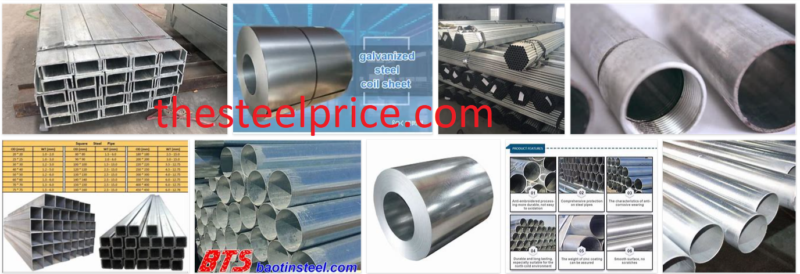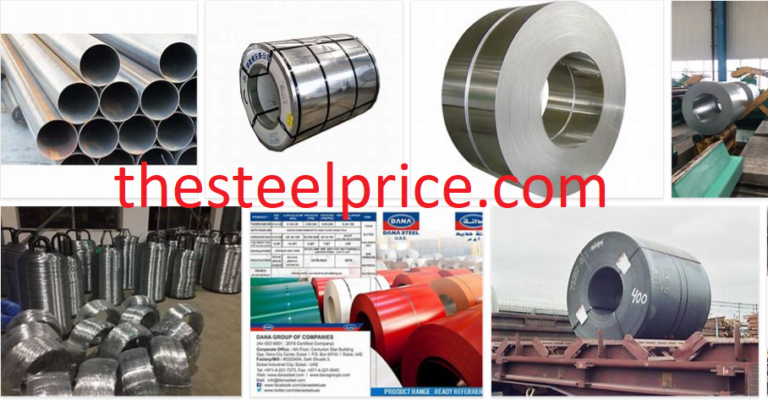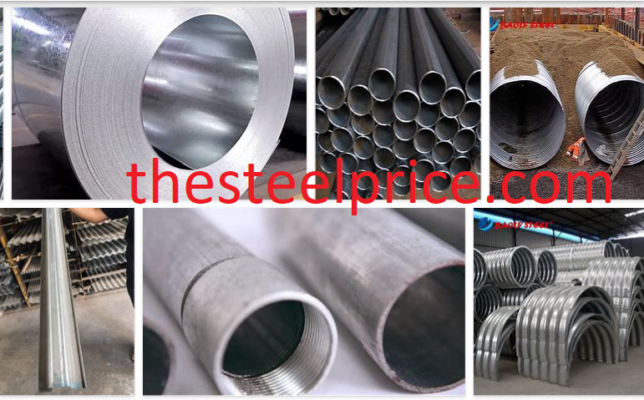[ad_1]
To assist you understand what 0,40 mm galvanized steel is and why it’s vital, here are some useful resources.
This is the weight of our galvanized steel, 21 gauge, at a thickness of 40 microns.
Hot-rolled steel has a thickness of 0,45 mm, while galvanized steel has a thickness of 0,40 millimeters.
The 0.40 mm galvanized steel sheet is made up of 40 g/m2 steel coils and is available in either corrugated or flat forms. Construction and architectural projects employ galvanized sheet because of its high quality. Galvanized steel with a thickness of 0.40 mm
Steel that has been zinc coated for corrosion resistance and strength is called galvanized steel. Headers, racking, and structural steel will soon be made of galvanized steel… Galvanized steel plates with a thickness of 0.4 mm are regularly encountered on the market; if you’re looking to buy one, you’re free to shop at…
This European-style hardware is made of 0.40 mm thick galvanized steel sheet, which has the beauty of a traditional design but the strength and durability to handle contemporary living.
There are two types of galvanized steel: hot-dipped galvanized sheet (GI) and G.I. sheet (also known as galvanized steel). Fencing and roofing are two common applications. It’s cheaper than stainless steel, but if left unpainted, galvanized steel may rust, whereas stainless steel is impervious to moisture.
To avoid rusting and corrosion, galvanized steel is a kind of steel that has been galvanized. Galvalume steel is also known as GZ or Galvanized steel.
Steel that has been zinc coated to prevent rusting is known as galvanized steel. Galvanized steel comes in two flavors: hot-dip and electrogalvanized.
Galvanized steel with a 0.40 mm thickness. Thickness of the galvanized steel is 40 microns.
When it comes to galvanized steel, we understand the necessity of shaping it with the correct quality of steel to ensure its long-term stability. Galvanized steel with a thickness of 40 microns or more is in high demand in Pakistan for a broad range of industrial and construction projects.
It is possible to utilize 0,40 mm galvanized steel sheets for structural reasons or to guard against corrosion. Outdoor furniture, boat decks, and recreational vehicles all benefit greatly from the use of this material. It’s strong, flexible, and easy to work with.
What is the weight of 0.40mm galvanized steel? Steel plate thicknesses ranging from 0.40 to 0.80 mm are widely employed in a wide range of industries, including machine manufacture, electric panel manufacturing and building.. Here is a steel sheet weight table, based on GB/T 2475-2008, that may assist you in determining the proper steel plate size.
For use in roof covering materials and accessories, galvanized steel, 0.40 mm thick (olefin coated). As a result, galvanized roofing is more flexible, allowing for a renewal without the need to take off just the afflicted portion of prior roofing material.
0.016 inch, or 0.390 millimeters, is equal to 0,40 millimeters (mm).
A typical plate thickness of 0.40 mm is employed in contemporary construction, whether it is for private residences, public structures or industrial machinery. Internal and outdoor partitions may be made using this steel. Architects’ preferred millimeter measurements are represented by the weights, which have a thickness of 0.40 mm.
There are no extra layers of transparent zinc added to galvanized steel’s actual thickness. Paper is attached to one side of galvanized steel sheets and zinc is applied to the other. There are several gauges and weights of galvanized steel, which may be identified by a three or four-digit number and prefixes like 10- or 12-. The zinc coating on metal becomes thinner as the gauge number rises.
With its vast range of uses, galvanized steel is used in a number of industries and structures. Zinc galvanizing is the process used to coat steel sheet with a protective layer.
What is the weight of galvanized steel at a thickness of 0.40 mm? Galvanized steel with a thickness of 0.40 mm will cover 100 square meters. Structural framing, galvanized roofing, basic construction, and exterior sheathing all employ 0,40 mm thick galvanized steel.
For manufacture, a flat sheet of 0,40 mm steel is ideal. It’s utilized extensively in the construction of walls and roofing. Trash cans and general-purpose boxes are also made from this material. Depending on the thickness of the material and the alloy used, the weight of 0,40 mm galvanized steel might vary.
what is 0,40 mm galvanized steel weight
You may carry the 0,40mm Galvanized Steel Weight with you camping or for a few days away.
Durable and simple to clean 0,40 mm galvanized steel weight plate.
A sandwich panel made of 0.40 mm galvanized steel and 0.60 mm inner steel, sandwiched between two layers of insulating concrete, is known as a 0,40 mm galvanized steel panel. Adding approximately 12.5–18 g/m2 to the steel surface, the galvanization process protects the steel against rust. For thin sections, such as galvanized roofing plates, galvanized corrugated pipework, ornamental elements, and vehicle body parts, galvanized steel is employed.
The thickness of standard steel is 0.40 mm. The zinc coating on a sheet of galvanized steel, which may be as thick as 0.30 mm, is readily apparent. This zinc-coated steel sheet must have a high zinc content in order to avoid corrosion owing to the environment and the protective action of the surface, which helps to prevent rusting and deterioration of the protected property..
At 0.40 mm, the minimum thickness of galvanized steel sheet is required for this product to meet international standards. Anticorrosive features of the galvanized surface make it ideal for use in areas that are not directly in touch with food, such as the inside of the kitchen.
This wire has a 0.40 mm thickness, making it excellent for light soldering tasks.
Zinc is used to coat or plate galvanized steel, which is a form of steel that has been treated to keep it from rusting. Mills, or millimeters, are used to measure the galvanized steel’s thickness. Roofing and gutters are just a few examples of the things you may make with it.
welding and joining two pieces of metal using steel rods. It’s strong, long-lasting, and durable. It may be used as a substitute to other connections for this purpose. Galvanized steel rods come in a variety of thicknesses and lengths, depending on the market. For joining the two steel parts, it has a beautiful black surface finish that makes it perfect.
Cor-Ten 40 mesh weight is six times more corrosion resistant than conventional steel. Due to the abrasive blasting, the surface is immaculate and has a wonderful texture.
Source link



